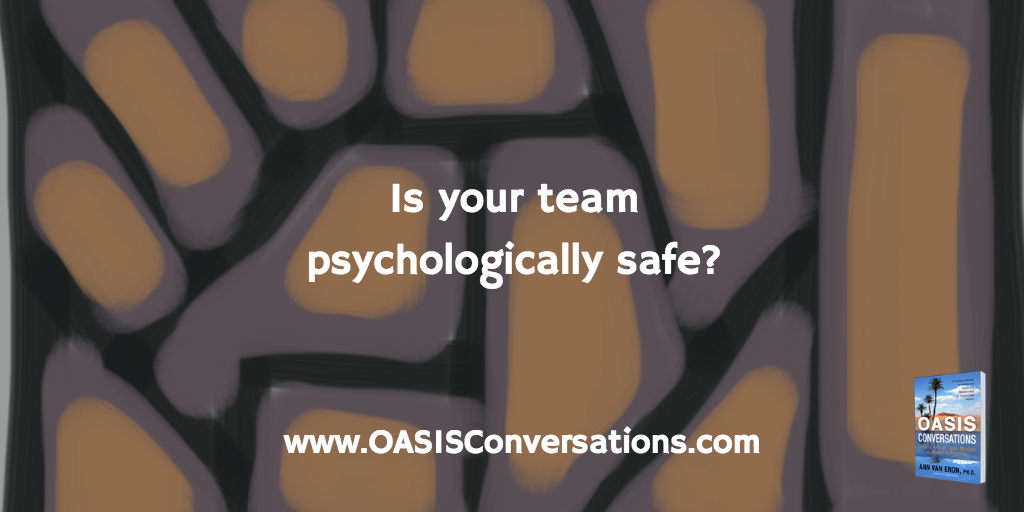
“Psychological safety describes a team climate characterized by interpersonal trust and mutual respect in which people are comfortable being themselves.” — Amy Edmondson
A manager said angrily to her staff member, “This work is not up to par. Don’t you know how to put together a decent presentation?” Clearly, she was agitated that she did not receive a draft that would serve her needs and she had several other pressing deadlines. However, her tone and manner of giving feedback demeaned her team member and caused the team member to feel uncertain. The two did not have a real conversation. At first the team member tried to defend her work. “This is what you said you wanted.”
While she knew that her manager often seemed to change her mind, she felt humiliated and angry and as a result, did not really hear the changes her manager suggested. She was too flooded with stress and she lost her sense of confidence. Instead, she talked about her boss to colleagues. She was looking for empathy and understanding. Instead, they shared their own stories of receiving negative feedback. In a short while the atmosphere of the team became negative. The next version of the presentation that the colleague gave to her manager did not meet her boss’ expectations. Now the boss was complaining about the inadequacies of the team member to her colleagues and other members of the team. The spiral was in place and continued to go downhill.
In this situation, the staff member began complaining about her boss to others outside the department and word filtered back to HR and the boss. Emotions are contagious and the climate of the team declined. Eventually the team member sought out a different role. This team lacked psychological safety. Unfortunately, this is not an uncommon situation. The manager and the team member did not intend to be difficult or cause harm and both were skilled and worked hard. Both manager and the team member reacted to stress and both regretted the energy required to deal with the aftermath. Both would benefit from knowing how to manage their reactions and being able to successfully engage in an open-minded conversation to give and receive feedback. Being open-minded and able to manage ourselves and engage in conversations are critical for success these days.
Google conducted a comprehensive study of 180 teams to analyze the critical ingredients of high performing teams. The study identified psychological safety as the most important factor. If team members felt comfortable asking for constructive feedback and exploring divergent views with one another, they experienced a greater sense of trust and openness. These teams were more productive too.
It is critical to take steps to ensure that your teams are experiencing psychological safety. You can do so by adapting an open mindset and having meaningful conversations with each other. You can agree on norms for how the team will operate. For example, how you will handle disagreements and create a positive climate. It is important to assume positive intent and respect that people generally desire to do well. Yet we each have different strengths and different views of what is important. When we make assumptions without testing them, we invariably create a negative spiral without our desired results.
What steps are you taking today to create more psychological safety in your teams?
Contact us at any time at www.Potentials.com.
